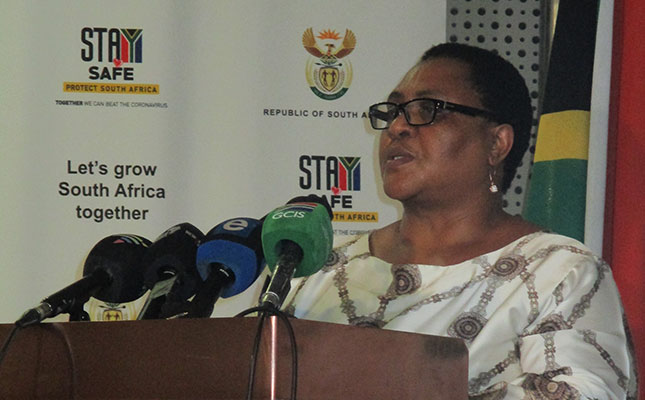
The scheme was announced by the Department of Agriculture, Land Reform and Rural Development (agriculture department) and the Land Bank in Tshwane on Monday (24 October).
Thabi Nkosi, chairperson of the Land Bank, said the department had allocated R325 million per year for the next three years to set up the scheme.
READ R141 million investment boost for smallholder citrus farmers
The bank would be matching match this amount on a rand-for-rand basis, bringing the total value of the scheme to R1,95 billion.
“The bank still has serious ongoing legacy issues that needs to be addressed, but after a two years hiatus I can confidently say that the bank is back in business and is able to assist clients in all nine provinces to apply for this blended financing scheme.”
Nkosi added that this scheme would make the funding of agriculture more viable, bankable and affordable. In an interview with Farmer’s Weekly, the minister of Agriculture, Land Reform and Rural Development Thoko Didiza, said the scheme was aimed at supporting small to medium-sized black farmers, as well as partnerships between black and white farmers.
READ ‘Zero Hunger’ by 2030: a goal becomes a mirage
“In the case of a partnership, it would be ideal if the ownership is divided on a 60:40 [black-owned versus white-owned] basis. The point of the scheme is to bring more black farmers to a commercial level,” Didiza said.
She added that one of the conditions of this scheme was that farmers needed pre- and post-loan support.
“This goes for all farmers, not only new entrants to the sector. Even white, commercial farmers need post-lending support in order to ensure that they are able to service their debt.”
READ Land Bank denies unethical behaviour towards ‘distressed’ farmers
Didiza said that the department was also in the process of investigating ways in which title deeds for land could be transferred to land reform beneficiaries, as this could then be used as collateral to obtain financing.
Van der Rheede told Farmer’s Weekly at the launch that it was “gratifying to see that the bank was on the road to recovery”, but it was also important that the state-owned enterprise should learn from its past mistakes.
“The money must only be lent to the right persons on the correct basis. If loans cannot be repaid in a timeous manner, the bank will simply find itself in the same predicament that it’s currently in,” Van der Rheede said, referring to the fact that the Land Bank had previously defaulted on its own debt.
Get trusted farming news from Farmers Weekly in Google Top Stories.
➕ Add Farmers Weekly to Google ✔ Takes 10 seconds · ✔ Remove anytime






